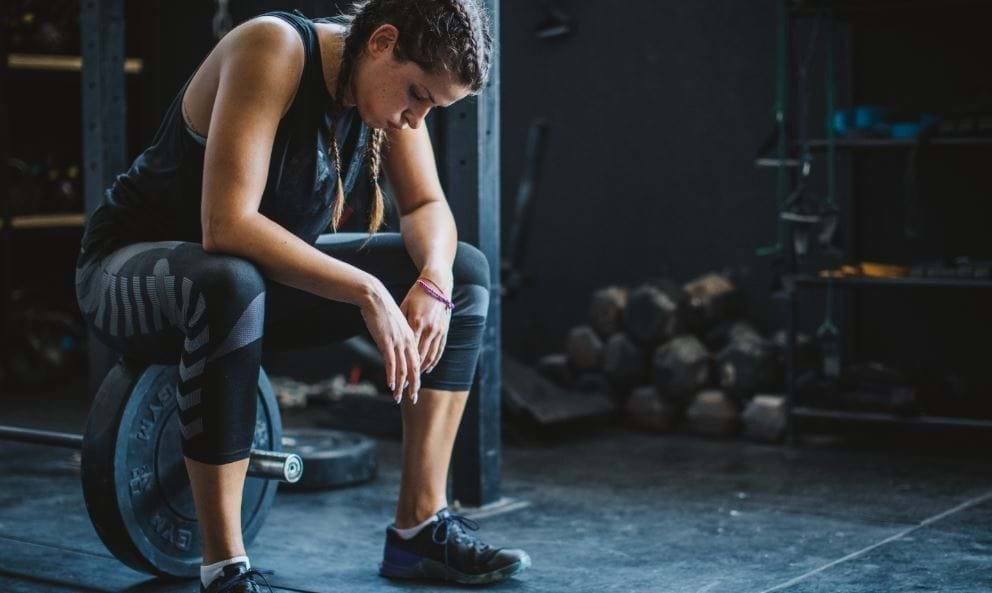Too Tired To Exercise? How To Boost Energy For The Gym

Want to get in shape but always seem to be too drained to work out? We’ve all been there—when you’re feeling wiped out, the last thing you want to do is burn even more energy heading to the gym. Sure, taking a rest day now and then can help you recover, but if you’re consistently feeling off, it might be a sign that it’s time to make some changes to your routine. Boosting your energy levels can help you feel more motivated and ready to hit the gym.
You probably already know that exercise has both mental and physical benefits, but did you also know it can actually give you more energy in the short- and long-term?
Short-Term Energy Boost from Exercise
It might seem counterintuitive, but exercising actually gives you more energy, not less. If you're feeling wiped out after a workout, it could be a sign that something's off with your routine. There are two key reasons why exercise can boost your energy in the short term:
Endorphins
When you work out, your body releases endorphins---those "feel-good" chemicals that help improve your mood, reduce stress, and ease discomfort. These mood boosters can give you a natural energy lift, making you feel more upbeat and energized.
Increased Blood Flow
Exercise also gets your blood pumping, which means more oxygen and nutrients are delivered to your muscles and brain. This helps fuel your body and mind, giving you the energy to power through the rest of your day.
Long-Term Energy Boost from Exercise
Regular exercise can seriously ramp up your energy levels in the long run. Here’s how:
More Mitochondria, More Energy
Exercise helps increase the number of mitochondria in your muscles. These are the tiny powerhouses in your cells that produce nearly all the energy your body uses. The more mitochondria you have, the more energy your body can generate.
Better Cardiovascular Health and Endurance
Working out also strengthens your heart and lungs, improving your overall endurance. This means everyday tasks—like running errands or climbing stairs—won’t leave you feeling as drained. Plus, regular exercise can help you sleep better at night, so you wake up feeling more rested and ready to take on the day.

Our top 8 tips to keep you energized:
- Make sure you are eating and drinking enough
As the saying goes, food is fuel -- without adequate nutrition, you're not going to have the fuel needed to move your body.
Make sure you have eaten enough high-quality food during the day before your workout. If you're exercising within 2-3 hours of a big meal, that should be enough to keep you going. If you're planning on working out outside of that time frame, aim to have a snack 30-60 minutes before. You can learn more about how food provides energy here.
The best pre workout snack for energy is one that is carb rich, with a little bit of protein. Carbs are your body's preferred energy source for exercise, while protein helps repair and synthesis muscle growth. A banana and Greek yoghurt, egg on toast, or a low-fat cereal with milk are all easy to eat options, but you can find your own combinations.
Eating before a workout will give an energy boost, but it's important to make sure you're eating enough nutritious food and drinking water throughout the day too. One of the first signs of dehydration is fatigue, so if you're not drinking enough water, you may feel low on energy no matter what you eat. Having too big a calorie deficit can also cause low energy levels, so make sure you're not eating too little. While it may feel counterproductive to up what you eat so you can work out, especially if you're trying to lose weight, but it's better to have the energy to exercise so you can get the health and energy boosting benefits, while burning calories!
2. Sort your sleep schedule
When it comes to good health and having enough energy, the importance of sleep can not be overstated. When we sleep, our bodies use less energy -- so the more time spent awake, the more energy we need. Our bodies also use sleep to repair and recover from stress, exercise, and more -- without enough sleep we don't get the recovery needed.
Plan a sleep time routine that allows enough sleep (around 6-8 hours) before you have to get up and stick to it. If you struggle getting enough good quality sleep, check out our tips for improving sleep here.
3. Have a coffee
If you prefer to work out in the morning, having some caffeine 45-60 minutes before your workout can act as a pre-exercise energy booster. There are plenty of pre workouts and energy drinks catered for the gym, but a coffee works just as well. You can learn more about what pre-workout is here.
If you go down this route, make sure that having caffeine isn't the only way you're upping your energy levels -- getting enough food and sleep is still important!
You should also avoid having caffeine in the afternoon as this can impact your sleep, and leave you feeling more tired the next day.
Find a workout time that works for you
No matter how hard they try, some people just aren't destined to be morning gym goers, while others struggle to get energy to work out after work.
Rather than working against your body, find the time of day you feel most energized and plan your workouts for then. For example, instead of asking how to get energy to workout after work, ask yourself if there's a time you could work out earlier in the day -- could you get your stuff ready the night before and fit in a short workout before work? Maybe you could do a HIIT session on your lunch.
Pure Fitness is open 24/7 so you can be as flexible as you want!
4. Train with a buddy
When you're low on energy, it becomes nearly impossible to motivate yourself -- so even if you make it to the gym, you might not have a good session. Training with a friend adds external motivation and can boost your mood, which can create the energy needed to help drive a good workout.
If there are days you know you might be low on energy, why not plan to train with your friend in advance?
5. Book a fitness class
Booking group exercise classes is a great way to make sure you train when you really aren't feeling it. It's much harder to bail on a workout when you have something physically booked in -- there's no pushing it back until it's too late to go! Being in a group, surrounded by other people's energy, with an instructor and music to motivate, can also be very energizing.
6. Turn up the tunes
Listening to upbeat, high energy music can actually give an energy boost and help you achieve more at the gym. Choose songs that you energy and have good rhythm, and focus on how the music makes you feel -- this tactic won't work if you glaze over the music and think about how tired you are!
8. Plan shorter workouts
A workout doesn't have to be 60+ minutes to be effective - doing just 20 minutes can be enough to boost your mood (and get those exercise health benefits too). Why not factor in some shorter workouts you can turn to when you're feeling tired? HIIT workouts are a great way to improve your cardiovascular fitness, burn calories, and get your blood pumping -- you can find some of our favorite short HIIT workouts here. You could also opt for a low intensity bodyweight workout, or a yoga flow.
Hopefully these tips will help to give you the energy needed to get to the gym, so that you can get more energy from your workout. If you need inspiration, check out these useful links:
- https://www.mdpi.com/1422-0067/22/1/338
- https://onlinelibrary.wiley.com/doi/10.1002/cphy.c100048
- https://www.ncbi.nlm.nih.gov/pmc/articles/PMC1540458/
- https://www.frontiersin.org/articles/10.3389/fcvm.2019.00069/full
- https://onlinelibrary.wiley.com/doi/abs/10.1111/jsr.12297
- https://pubmed.ncbi.nlm.nih.gov/33388079/


